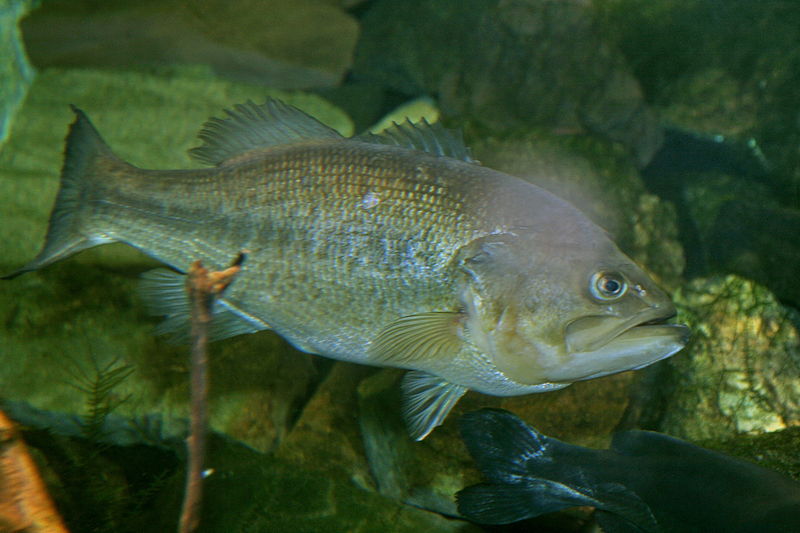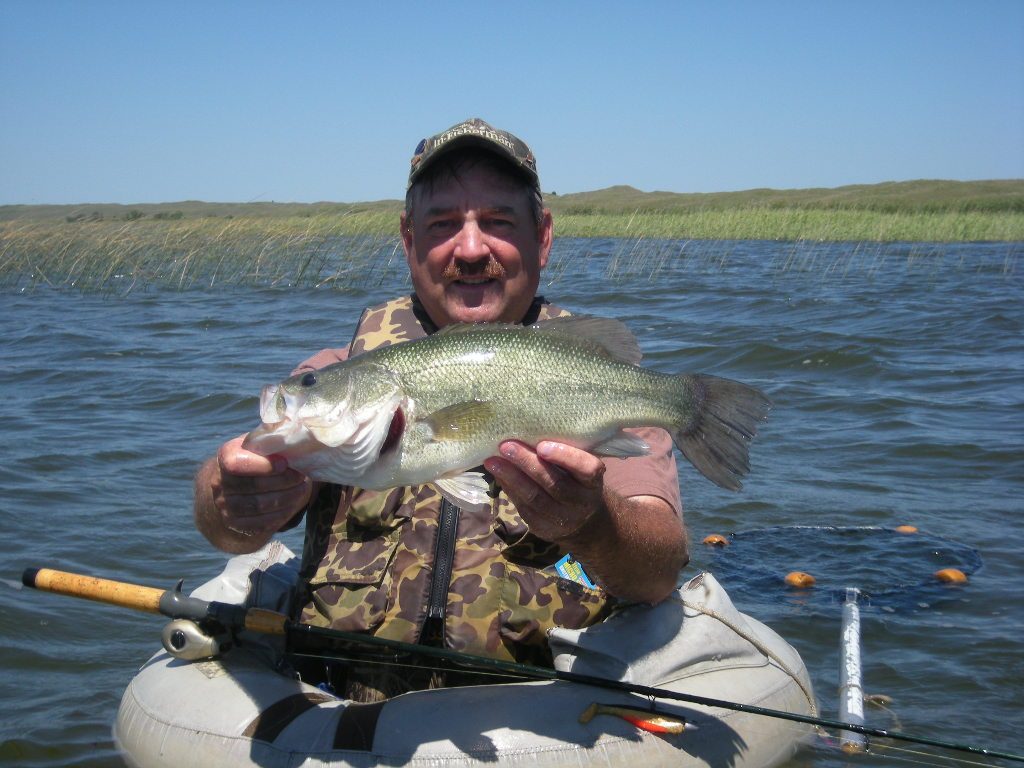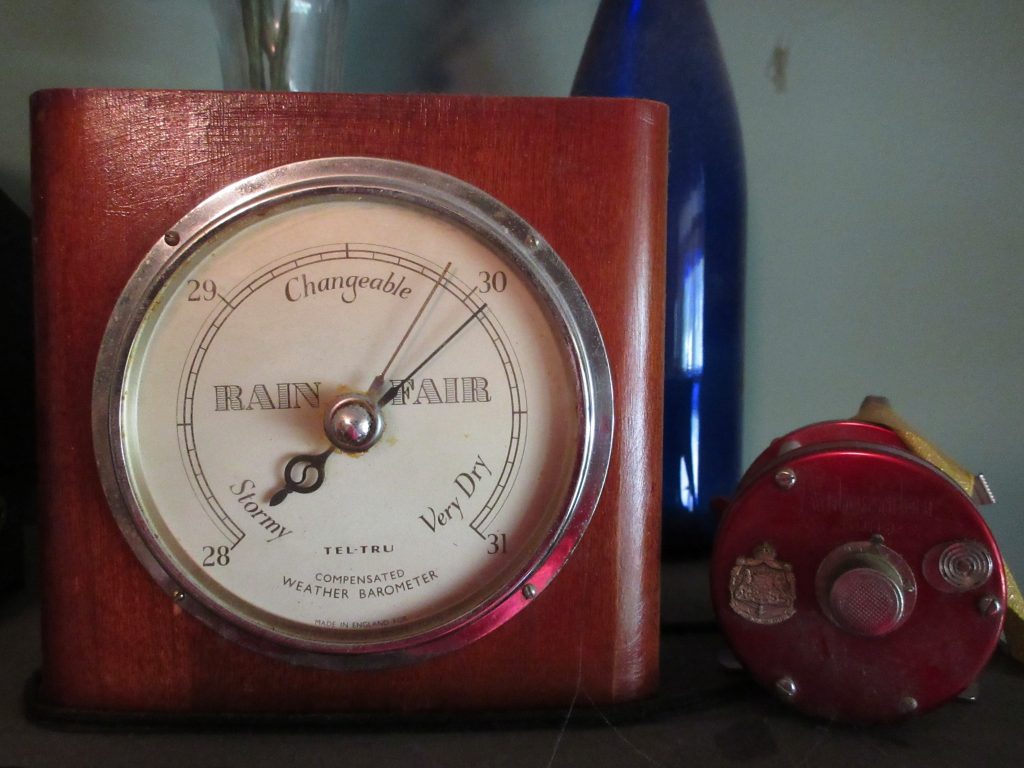Through the ages fish and fishing have generated innumerable superstitions. Gramps Roth always told me I had to hold my mouth just right to catch fish. To this day, I am trying to figure out what he meant by that? No doubt a lot of that superstition arises from the fact that we cannot see below the surface of the water and directly observe fish behavior. Some days it seems that purely random events are the difference between catching fish and going home “skunked”.
If you talk to twenty different anglers and ask them what the keys are to a hot bite, you will likely get several dozen replies ranging from wearing their lucky shorts (not going to go there) to “scientific” formulae, charts and predictions. Some of those theories have merit, some are “old fisherman” tales.
There is no doubt that weather plays a major part in the daily activity of fish and game. I can tell you that one of my best days ever pulling big Bluegills through the ice was followed by a weather change and the following day on the same water, same locations, my partners and I could not buy a Bluegill. I broke off one Pike that day and that was it. Any angler can tell you similar stories, so we are particularly superstitious about weather:
Wind from the east, fish bite the least;
Wind from the west, fish bite the best;
Wind from the north, few sailors set forth;
Wind from the south blows the bait to the fish’s mouth.
Other than the wind, some anglers will swear by the barometer as an indicator of fish behavior. Is there any truth to that, or is it just an excuse for a day when little or nothing was caught? Is it anything more than a superstition? My Grandpa Bauer had a barometer that hung in the breakfast nook where we could see it every morning; did it possess some kind of magic?
Back in my college days I briefly explored the topic by holding some adult Crappies in a tank and recording the times at which they consumed live Minnows. The semester was short and so was my experiment, the resulting data set was puny, but it showed no relationship between feeding times and lunar periods or barometric pressure. However, pointy-headed fisheries biologists with much more rigorous studies have found similar results. Take a few minutes to read this:
Be sure to read the article, but let me summarize by quoting these two paragraphs:
We monitored all of these variables and many others without finding any single factor that was a reliable predictor of feeding or striking activity by black bass. At any given time, some bass were inactive, some neutral, and some active. Small catches result when the percentage of inactive bass increases, while larger catches result when a few more fish decide, for whatever reason, to actively seek food.
Apparently, the only sure biological fact is that adult bass that have recently fed heavily and are digesting food tend to be inactive or neutral regardless of any environmental factor, including barometric conditions. The length of time since many of the bass in an area fed heavily and the time required to digest that meal are perhaps the most important clues to when a significant proportion of any bass population will next become active.
In-Fisherman.com, Barometric Pressure and Bass by Ralph Manns
The problem with trying to isolate one weather variable and claim it as THE indicator of fish behavior is that there are several weather variables that interact at the same time. Does weather impact fish & game behavior? No doubt. But, it is not necessarily the barometer, or the wind direction, or the temperature, or cloud cover, or dew point, or whatever weather variable is your favorite that is THE trigger. It is all of them, interacting at the same time, and oh, there is so much variability that no one variable can be isolated. There is nothing that results in a hot bite 100% of the time. Nature is too intricate to be that predictable.
So, if you walk up to me and tell me it is a lousy day to go fishing because the barometer is high, or that I better get out there because the barometer is dropping, I may politely smile and shake my head, but inside I am thinking you are full of the hot air which may have resulted in a falling barometer. Why? Am I just being impolite? If you took some time to read the article I referenced above, you will have read about some fish anatomy, physiology and physics. . . .

It took me several years of college to learn that fish live underwater. Duh. Under the surface, they are constantly under the pressure of all of the water over their heads. The deeper they go, the more the pressure. That pressure from living below the surface is many times greater than the atmospheric pressure above the water.
Fish regulate their buoyancy with swim bladders and changes in pressure no doubt impact their buoyancy and ability to effortlessly hold at a certain depth. Those changes in pressure below the surface come from fish moving up or down in the water column. With depth changes fish experience pressure changes and must adapt to them, regulate the contents of their swim bladders, if they want to establish neutral buoyancy at a new depth.
Will changes in atmospheric pressure above the surface of the water be “felt” by the fish? Will those changes result in fish moving up or down in the water column to maintain neutral buoyancy? Well, probably not. The most dramatic changes in atmospheric pressure above the surface of the water are likely barely noticed below the surface–the pressure of the water is much more than the atmospheric pressure. Even if changes in atmospheric pressure were noticed by fish below the surface of the water, they could adjust to those new pressures by moving mere inches up or down in the water column.
I am not a huge believer in moon phases or lunar periods although there is some evidence that those can influence the behavior of inland, freshwater fish (Moon ‘Em). There may be an influence, but unless you fish a lot, you probably will not realize any differences in your catches. Likewise, I do not stare at the barometer, fishing pole in hand, waiting for just the right conditions to hit the water. If that ruins some of the mystique and mystery of fishing, some of the superstition, so be it, because I would much rather go fishing whenever I have time!

The post Under Pressure appeared first on NEBRASKALand Magazine.















